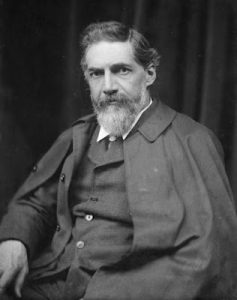Flinders Petrie, Wm. M. *
William Matthew Flinders Petrie (1853-1942) was a renowned English Egyptologist, who developed improved archaeological methods, some of which are still employed today. One of his first publications was in 1883, entitled The Pyramids and Temples 0f Gizeh[1660]. This is now available online, while a 1990 edition has additional material supplied by Zahi Hawass(c).
Jason Colavito has drawn attention(a) to a short article written by Flinders Petrie in Ancient Egypt, September 1924, in which he finds value in the work of Reginald Fessenden, who was an advocate of Atlantis in the Caucasus. However, I note that he makes no explicit comment on Fessenden’s Atlantis theory. Petrie was interested in the evidence that strongly suggested that people from the Caucasus region had an influence on the development of the ancient Egyptian culture, noting again a couple of year s later “It appears, then, that the cultural connections of the earliest Egyptians, as well as the physical descriptions in their mythology, point to the Caucasus region. When, further, we find there the names of the principal places of the mythology in their relative positions, it gives strong grounds for regarding that region as the homeland of the earliest civilization of the Egyptians”. (Ancient Egypt, June 1926) (b) .
Dr. Margaret Murray (1863-1963), who worked with Petrie, was also sympathetic to this view. More recently, Ronnie Gallagher has taken up this cause and has gone further by suggesting the possibility that not only were migrants from the Caucasus responsible for kick-starting the development of Egyptian culture, but that people from the same region had a similar influence on the early inhabitants of Sumeria and the Indus Valley.
Although Flinders Petrie is better known for his extensive work in Egypt, he also excavated in Palestine, where he died and was buried.
(a) https://www.jasoncolavito.com/flinders-petrie-on-atlantis.html
